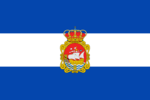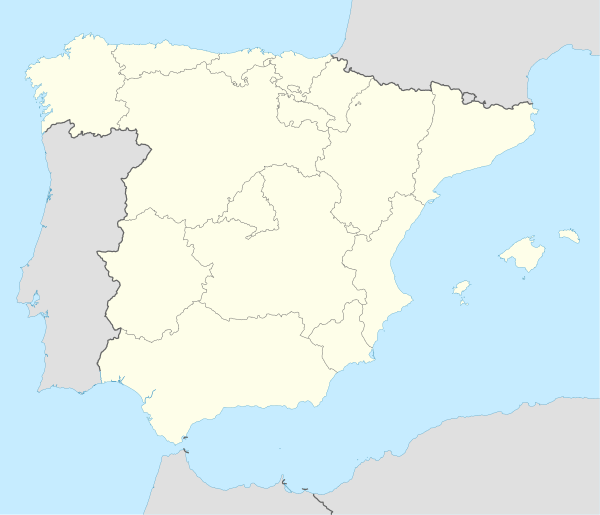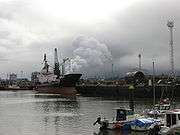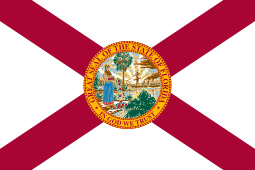Avilés
Avilés (Spanish pronunciation: [aβiˈles]) is a city in Asturias, Spain. Avilés is with Oviedo and Gijón, one of the main towns in the Principality of Asturias.
Avilés | |
|---|---|
City and Municipality | |
San Francisco street | |
 Flag  Coat of arms | |
 | |
 Avilés Location in Spain | |
| Coordinates: 43°33′22″N 5°54′30″W | |
| Country | |
| Autonomous community | Asturias |
| Province | Asturias |
| Comarca | Avilés |
| Capital | Avilés |
| Government | |
| • Mayor | Mariví Monteserín (PSOE) |
| Area | |
| • Total | 26.81 km2 (10.35 sq mi) |
| Elevation | 139 m (456 ft) |
| Population (2018)[1] | |
| • Total | 78,715 |
| • Density | 2,900/km2 (7,600/sq mi) |
| Demonym(s) | avilesino |
| Time zone | UTC+1 (CET) |
| • Summer (DST) | UTC+2 (CEST) |
| Postal code | 33401 to 33403 |
| Official language(s) | Spanish |
| Website | Official website |
The town occupies the flattest land in the municipality, in a land that belonged to the sea, surrounded by small promontories, all of them having an altitude of less than 140 metres. Situated in the Avilés estuary, in the Northern Central area of the Asturian coast, west of Peñas Cape, it has a national seaport and is an industrial city. It is close to popular beaches such as Salinas. It also has important churches like St. Thomas of Canterbury. Avilés has the Oscar Niemeyer International Cultural Centre (in Spanish: Centro Cultural Internacional Oscar Niemeyer).
History
Archaeological excavations have shown that the area was already settled in the upper palaeolithic era.
The existence of the town proper date is documented only in the early Middle Ages, although the name "Avilés" is thought to come from a local Roman landowner, Abilius.
The first well known document is an endowment of two churches by Asturias King Alfonso III, in 905. During the Middle Ages, it was one of the most important ports of the Biscay Bay, trading mainly with French ports, the main trade was salt. At this time, it had two nuclei: a fishermen's district, Sabugo, and the aristocratic centre, La Villa, standing each other across a small water inlet at the site of present-day Avilés' main Park. La Villa was surrounded by strong walls, which demonstrated its strategic and commercial importance. On 15 January 1479 the Catholic Monarchs granted a free market on each Monday of the year, which still takes place. The importance of the town as a naval centre is supported by the building of ships with wood harvested from nearby forests, and with the participation of local sailors in the conquest of Seville by the Castilian army, which is reflected in Avilés's coat of arms.
It is the birthplace of Pedro Menéndez de Avilés, a soldier on the army of Felipe II, who explored Florida in the 16th century and founded in 1565 the first successful (continuously populated) European town in what is now the United States, San Augustín (now St. Augustine, Florida). St. Augustine and Avilés are now sister cities. Avilés is also the birthplace of Juan Carreño Miranda, court painter to the king Charles II.
.jpg)
.jpg)

The estuary, which had been closed to navigation since the early modern era, was partially drained and cleared in the 19th century. The water inlet dividing the place was covered, so that the two nuclei, Sabugo and La Villa, could be joined together. Then the city began to grow outside the medieval wall, which had been demolished in 1818. In the 20th century, there was an enormous growth in population due to the arrival of several large factories to the town. In 1953 were started the first earthworks for the construction of the factory of ENSIDESA, a large steel mill, currently Aceralia (part of ArcelorMittal); other companies in the area are Cristalería Española, which together with ENDASA, currently Alcoa, transformed Avilés into one of Spain's industrial centres. Nowadays, the city is trying to focus on new industries, particularly cultural tourism, and recover its antique flavour.
Culture
Architecture
Sights include:
- St. Thomas of Canterbury church (dating from the 13th century)
- Church of Saint Nicholas of Bari (12th-13th century), in Romanesque style
- Palacio de Valdecarzana, the sole example of civil medieval architecture in the town
- Palacio de Llano Ponte (1700–1706)
- Baroque Palacio de Camposagrado, fortified in its north façade against the English pirates
- Capilla de los Alas, a 14th-century funerary monument in Romanesque-Gothic transition style
- Old church of Sabugo (13th century)
- Palacio de Balsera, in Modernist style
- Palacio Valdés Theatre, in Neobaroque style.
Museums and arts centres
- Museum of Avilés Urban History
- Black Pottery Museum
- Alfercam Museum, where visitors can find a combination of world musical instrumentas and vintage cars.
- "Casa de Cultura", including the Bances Candamo public library, art gallery, reading and study areas.
- CMAE - Centro municipal de arte y exposiciones - arts and exhibicion centre in El Arbolón area, not far from the town centre.
- Oscar Niemeyer International Cultural Centre, designed by the Brazilian architect Oscar Niemeyer. It is a magnet for different personalities, including winners of the Prince of Asturias Awards, the Nobel prize, musicians, actors, the United Nations, etc.
Sculptures
Throughout the town there are sculptures in various styles: the set of sculptures in El Muelle park,[2] specially the Pedro Menendez sculpture and La foca (the seal); the Ruta del acero set of sculptures along the Avilés estuary; Avilés sculpture, and different ones such as: Marta y María, El hombre que escucha la piedra (the man who listens to the stone), El eslabón, Entre bambalines,[3] etc.

.
Feasts and traditions
Some of the most famous are:


In autumn:
- Feast of the Amagüestu (Autumn).
In winter:
- The Antroxu (Carnival in Asturian language) which includes the Galiana's Street Internarional and Fluvial Descent (Descenso Internacional y Fluvial de la calle de Galiana).
In spring:
- The Feast of the Bollo (Fiesta del bollo) (the bollo is a traditional cake) (Bollo de Pascua de Avilés).[4]
- Lunch out in the street (Comida en la Calle).
- The LGBTIQ+ Asturian Cinema Festival (Festival de Cine LGBTIQ+ de Asturias).[5]
In summer:
- The Celsius 232, a terror, fantasy and science fiction literature festival.[6]
- The Interceltic Festival of Avilés, which takes place in summer, with people coming from all celtic nations (Brittany, Ireland, Wales, Scotland, Galicia, Asturias...).
- Feast of Saint Augustine (Avilés' patron saint).
- "La Mar de Ruido" rock festival.
Festivals
- Interceltic Festival of Avilés, which takes place in summer, with people coming from all celtic nations (Brittany, Ireland, Wales, Scotland, Galicia, Asturias...).
- Avilés International Cinema and Architecture Festival[7]
- Beer Festival
- Avilés Acción Film Festival, an international short-film festival.[8]
- Sol Celta [9] organized from Sol Street.
- IndieGo Alley Festival,[10] International Creative Commons film and music festival (live music, videoclips, experimental cinema and short-films) organized in Palacio Valdés street. It takes place during just one evening.
Climate
The area experiences an oceanic climate,[11] warm summers with both overcast and sunny days. In winter the weather is moderate, with significant rains and wind, although sometimes the cold climate of Asturias results in snowfall at sea level. The temperature is rarely below zero or over 30 °C (86 °F). Summer highs are exceptionally low by Spanish standards due its heavy maritime features and northerly position in the country.
| Climate data for Avilés | |||||||||||||
|---|---|---|---|---|---|---|---|---|---|---|---|---|---|
| Month | Jan | Feb | Mar | Apr | May | Jun | Jul | Aug | Sep | Oct | Nov | Dec | Year |
| Record high °C (°F) | 23.5 (74.3) |
24.3 (75.7) |
26.7 (80.1) |
28.6 (83.5) |
33.6 (92.5) |
36.0 (96.8) |
33.0 (91.4) |
31.6 (88.9) |
36.0 (96.8) |
31.0 (87.8) |
25.6 (78.1) |
25.6 (78.1) |
36.0 (96.8) |
| Average high °C (°F) | 12.9 (55.2) |
13.1 (55.6) |
14.6 (58.3) |
15.1 (59.2) |
17.3 (63.1) |
19.6 (67.3) |
21.5 (70.7) |
22.2 (72.0) |
21.2 (70.2) |
18.7 (65.7) |
15.3 (59.5) |
13.3 (55.9) |
17.1 (62.8) |
| Daily mean °C (°F) | 9.4 (48.9) |
9.4 (48.9) |
10.7 (51.3) |
11.3 (52.3) |
13.6 (56.5) |
16.2 (61.2) |
18.2 (64.8) |
18.8 (65.8) |
17.4 (63.3) |
15.1 (59.2) |
11.8 (53.2) |
9.9 (49.8) |
13.5 (56.3) |
| Average low °C (°F) | 5.9 (42.6) |
5.7 (42.3) |
6.8 (44.2) |
7.5 (45.5) |
10.0 (50.0) |
12.8 (55.0) |
14.8 (58.6) |
15.3 (59.5) |
13.7 (56.7) |
11.3 (52.3) |
8.4 (47.1) |
6.5 (43.7) |
9.9 (49.8) |
| Record low °C (°F) | −3.0 (26.6) |
−2.6 (27.3) |
−2.4 (27.7) |
−0.6 (30.9) |
2.0 (35.6) |
5.6 (42.1) |
8.0 (46.4) |
8.4 (47.1) |
6.5 (43.7) |
3.0 (37.4) |
−0.8 (30.6) |
−3.0 (26.6) |
−3.0 (26.6) |
| Average precipitation mm (inches) | 103 (4.1) |
88 (3.5) |
82 (3.2) |
99 (3.9) |
79 (3.1) |
61 (2.4) |
47 (1.9) |
60 (2.4) |
73 (2.9) |
116 (4.6) |
134 (5.3) |
117 (4.6) |
1,062 (41.8) |
| Mean monthly sunshine hours | 98 | 109 | 142 | 151 | 166 | 163 | 173 | 182 | 170 | 130 | 96 | 76 | 1,670 |
| Source: Agencia Estatal de Meteorología[12] | |||||||||||||
Politics

The first mayor of Avilés, after the Spanish Transition, was Manuel Ponga Santamarta (FSA-PSOE) (1979-1983) (1983-1987) (1987-1988), then Santiago Jesús Rodríguez Vega (FSA-PSOE) (1988-1991) (1991-1995) (1999-2003) (2003-2007), Agustín Gonzalez Sánchez (PP) (1995-1999), Pilar Varela Díaz (FSA-PSOE) (2007-2011) (2011-2015), and the current one María Virtudes Monteserín Rodríguez (FSA-PSOE) (2015-2019) (2019-2023).
| Party/List | 1979 | 1983 | 1987 | 1991 | 1995 | 1999 | 2003 | 2007 | 2011 | 2015 | 2019 |
| PSOE | 10 | 17 | 10 | 12 | 9 | 12 | 10 | 11 | 10 | 8 | 10 |
| AP/PP | 6 | 5 | 7 | 11 | 8 | 10 | 8 | 6 | 6 | 4 | |
| C's | 2 | 4 | |||||||||
| Cambia Avilés | 5 | ||||||||||
| Vox | 2 | ||||||||||
| Somos[13] | 5 | ||||||||||
| PCA/IU-IX[13] | 4 | 2 | 4 | 5 | 5 | 4 | 4 | 2 | 3 | 3 | |
| Ganemos | 1 | ||||||||||
| FAC | 6 | ||||||||||
| UCD/CDS | 11 | 6 | 1 | ||||||||
| URAS/URAS-PAS | 1 | ||||||||||
| ASIA | 1 | 4 | |||||||||
| Total | 25 | 25 | 25 | 25 | 25 | 25 | 25 | 25 | 25 | 25 | 25 |
Parishes
- Avilés
- Corros
- Entreviñas
- Laviana
- Miranda
- Valliniello
Notable people
- Horacio Álvarez (1881–1936), politician, lawyer and journalist
- Kily Álvarez (born 1984), footballer
- Sergio Álvarez (born 1992), footballer
- Juan Carreño de Miranda (1614–1685), painter
- Yago Lamela (1977–2014), athlete
- Pedro Menéndez de Avilés (1519–1574), admiral and explorer
Sister cities




References
- Municipal Register of Spain 2018. National Statistics Institute.
- Conjunto Escultórico del Parque del Muelle, in Spanish Archived August 10, 2014, at the Wayback Machine
- El Revistín: Sculptures in Avilés, in Spanish Archived September 4, 2011, at the Wayback Machine
- Fiestas del Bollo (in Spanish)
- "Centro Niemeyer". niemeyercenter.org. Archived from the original on 25 August 2019. Retrieved 2019-08-25.
- Test, Test. "Inicio". Celsius 232 (in Spanish). Retrieved 2019-08-25.
- El Festival de Cine y Arquitectura es una cita que busca «romper todos los esquemas»
- Avilés Acción
- Sol Celta
- IndieGo Alley Festival
- "Aviles, Spain Climate Summary". Weatherbase. Retrieved 17 March 2015.
- "Valores Climatológicos Normales. Asturias Aeropuerto". Aemet.es. Retrieved 17 March 2015.
- España, La Nueva. "IU irá con Podemos a las municipales con la marca Cambia Avilés". www.lne.es (in Spanish). Retrieved 2019-08-25.
Bibliography
- Paseo ilustrado por el casco histórico de Avilés, Concejalía de Turismo, Ayuntamiento de Avilés, del Río, Alberto
- Avilés, Ediciones: Mases, Ovies Ruiz, José Ramón
- Asturias a través de sus concejos, Ediciones: Prensa Asturiana S.A.
- Heráldica Institucional y Vexilología del Principado de Asturias, Ediciones: Principado de Asturias, Panizo Gómez, Eduardo
- Avilés, una historia de mil años, Ediciones Azuzel, Juan Carlos de la Madrid
- Avilés, su fe y sus obras, author's edition, Ángel Garralda García
- Gran Enciclopedia Asturiana, Silverio Cañada, Several authors
External links
| Wikimedia Commons has media related to Avilés. |
| Wikivoyage has a travel guide for Aviles. |
| Wikisource has the text of the 1911 Encyclopædia Britannica article Avilés. |